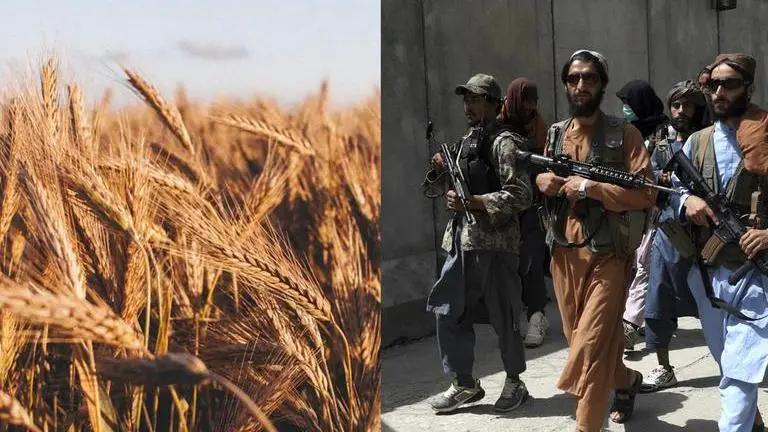Updated 21 May 2022 at 08:54 IST
Taliban ban wheat exports from Afghanistan to curb 'food insecurity'
The Taliban, on Thursday, suspended Afghanistan's wheat export or trade to avoid the food scarcity, a report published in Khama Press stated.
- World News
- 2 min read

The Taliban, on Thursday, suspended Afghanistan's wheat export or trade to avoid the food scarcity, a report published in Khama Press stated. Later in a Twitter statement, Taliban spokesperson Zabihullah Mujahid said that the administration has instructed all customs to stop wheat from going abroad. He defended the move stating that it is aimed at curbing food and wheat insecurity in the country.
Low rainfall and subsequent dry land this year have considerably reduced wheat production in the country. Additionally, residents are reeling from an unprecedented humanitarian crisis following last year’s Taliban takeover. Amidst all this, the gruesome Russia Ukraine war has escalated the prices of food grains, particularly wheat. In areas of Kandahar Province, the prices of wheat grains have surged by 50%.
India bans wheat exports
This comes as India also banned wheat exports on May 13. However, in the recent move, the government announced a relaxation of the rule. New Delhi, said that it has decided that wherever wheat consignments have been handed over prior to 13 May to Customs for examination and registered into their systems, such consignments would be allowed for export. The announcement came four days after the government prohibited the wheat export in a bid to manage the country's overall food security.
Notably, the central government also extended the wheat procurement season till 31 May 2022. Taking to Twitter, Union Minister Piyush Goyal on Sunday wrote, “To ensure that no wheat farmer faces inconvenience, Modi Government extends wheat procurement season till 31 May 2022. We are committed to ensuring farm prosperity." The decision will aid in controlling retail wheat and wheat flour prices, which have risen by an average of 14-20% in the last year, as well as meeting the foodgrain requirements of neighbouring and vulnerable nations.
Advertisement
Ukraine war leading to food crisis
Meanwhile, as the battle over Kyiv's sovereignty continued, Ukrainian President Volodymyr Zelenskyy called upon the international community to take immediate steps to end the Russian blockade of Ukrainian ports. As Russian President Vladimir Putin’s forces continued to strike Odesa, Zelenskyy emphasised that many countries were already on the brink of food shortage due to a lack of Ukrainian agricultural exports. He warned that the situation could become “frightening” over time if Moscow continued to annihilate Ukrainian ports.
(Image: AP)
Advertisement
Published By : Riya Baibhawi
Published On: 21 May 2022 at 08:54 IST

